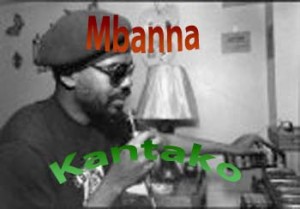 An uncompromising voice for human rights, unafraid to make unrestrained and harsh criticisms of local and federal officials, is still heard on the airwaves of Illinois capital city. Despite multiple letters and visits from the FCC over the years, the Springfield, Illinois unlicensed station Human Rights Radio celebrated its 25th anniversary last fall. This week the Illinois Times published a feature profile of fiercely independent broadcaster Mbanna Kantako who brought unlicensed radio to Springfield and inspired a new generation of micropower radio activists in the 1990s.
An uncompromising voice for human rights, unafraid to make unrestrained and harsh criticisms of local and federal officials, is still heard on the airwaves of Illinois capital city. Despite multiple letters and visits from the FCC over the years, the Springfield, Illinois unlicensed station Human Rights Radio celebrated its 25th anniversary last fall. This week the Illinois Times published a feature profile of fiercely independent broadcaster Mbanna Kantako who brought unlicensed radio to Springfield and inspired a new generation of micropower radio activists in the 1990s.
The piece tells the story of how the man formerly known as Dewayne Readus was radicalized by his experiences coming of age as a poor black man in Springfield, the first city north of the Mason-Dixon line to be sued under the Voting Rights Act to change its form of government because no black person had ever been elected to city council in 75 years. He became an activist and thorn in the side of city leaders, whom he openly and publicly criticized and mocked for how he saw them minimize black folks in Springfield, ignoring or acting against their interests.
Author Bruce Rushton reports that the idea for a radio station came from discussions Kantako, who has been blind since childhood, had with Mike Townsend, now a retired professor of social work at the formerly alternative-education minded Sangamon State College (now absorbed into the University of Illinois). Townsend suggested that Kantako start an underground paper to help organize fellow residents of the John Hay public housing complex.
“I can’t read, first of all, so I’m not very enthusiastic about it,” Kantako says. “Half the people I know can’t read, so that was just not viable.”
Given his experience as a DJ, Kantako decided a radio station would be better than a newspaper, so, with Townsend’s help, he got a mail-order transmitter for a few hundred bucks and plugged in. Some money for equipment came from the Catholic church, which had given a grant to the tenants rights association.
They could not have picked a better time than the fall of 1987.
Public station WUIS aired a story about Human Rights Radio’s anniversary last November. I was interviewed by reporter Rachel Ortwell, who dedicated much more time to asking Kantako and Townsend to tell the station’s story.
Previously: Microradio pioneer Mbanna Kantako receives notice from the FCC


